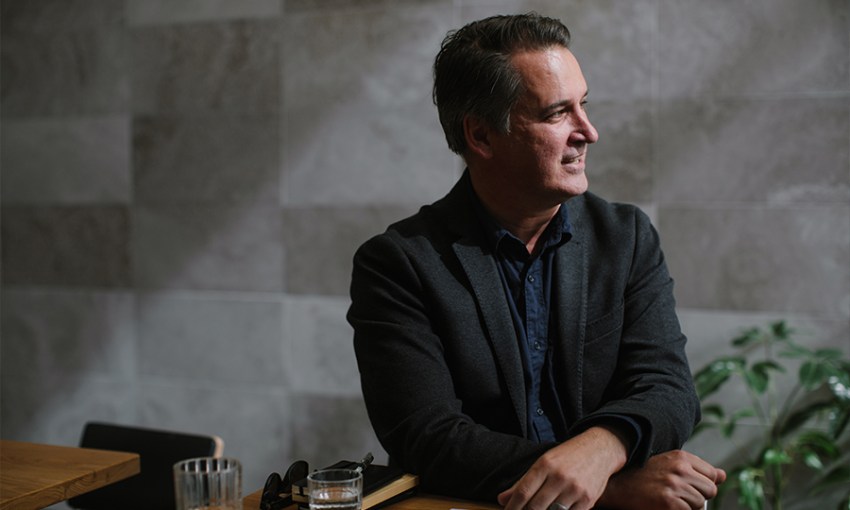In order to build sustainable careers, Australian musicians need a global audience. Crossover Music is an independent market development program that will help local artists make it on the international stage.
The art of crossing over: Taking South Australian music global
It’s harder today to make a living in the music industry than at any time in recent history.
Decades ago, there was a corporate machine keeping musicians, producers, sound engineers, label reps, and the broader industry fed, but piece-by-piece that machine has been dismantled by the advances of the digital age.
Labels have shrunk commensurate with sales, and the 21st century salve of streaming platforms like Spotify have created more paperwork than paper money for artists.
“The new gatekeepers are still appearing, and so you need to continue to adapt strategies to be seen,” says Joe Hay – co-founder of Crossover Music.

Joe has toured bands from Japan, connected artists with venues, and was a crucial link in making small bars an issue inside Labor.
Joe knows and loves music. Before establishing the Martin Elbourne music residency and changing the way government values and supports music, he toured bands from Japan and the US to Adelaide. Joe also launched Proof of Life festival, which seemed to serve as preamble to Umbrella Winter City Sounds and – importantly – he was the adviser to then-Premier Jay Weatherill, who connected the dots between the need for liquor licensing reform and action on the small venue licence.
Joe is a connector.
Along with Tyler Treves, a US-based radio promotion services manager, and James Adair, an Australian artist manager who has recently moved to the US, Joe is launching an independently-funded market development program helping musicians to find a global audience.
Joe explains that with the decline in revenues, labels are spending less on developing emerging talent. Even bands that are signed to Australian labels find little-to-no support developing international markets.
A band is essentially a small business competing against multinationals, Joe says, and in a local market where the majority of music consumed is imported, the potential career prospects for local artists is not huge.
It’s a sterile analogy for an arts industry, but in order for musicians to create viable careers, there must be an export strategy helping bridge the gap between Australia and the world.
“At the moment the Australian export approach [to music] is showcasing at international music markets and small grants,” Joe says.
“So you get a small amount of money to tour, but that might pay for your flights – Do you have a tour strategy? Do you have your networks in place? Why are you going? Is it the right time to go?
“What we are initially offering is a full release strategy in the US… So album release, serviced to radio, social media, all of the elements needed to build audience numbers.
“Using these new audience numbers, we will promote artists to international labels, promoters, booking agents and publishers.”
Rather than moulding the repertoire of an artist to broaden their appeal, Joe, Tyler and James will look at the niche they are hitting in the Australian market and find similar niches across the US.
“It is very targeted. So say you’re a punk band and you’re getting audience numbers in Australia, the idea being if you are resonating with an audience here, you should be able to communicate to the same niche around the world,” Joe says.
The program launched at Brisbane’s BIGSOUND festival and conference this year. If it works as the team intend, artists will be able to use their success in Australia to connect to larger markets and audiences in the US earlier, and use this exposure to secure further support and investment. On top of promoting artists the program will also help develop industry networks and knowhow.
“A lot of really good bands and artists who could be developing careers are hampered because they don’t have the resources. Our aim is to help these artists overcome the barriers to larger markets.
“Australia has a good reputation globally. We want to see us get a bigger market share and help build more sustainable careers for people in the music industry.”




